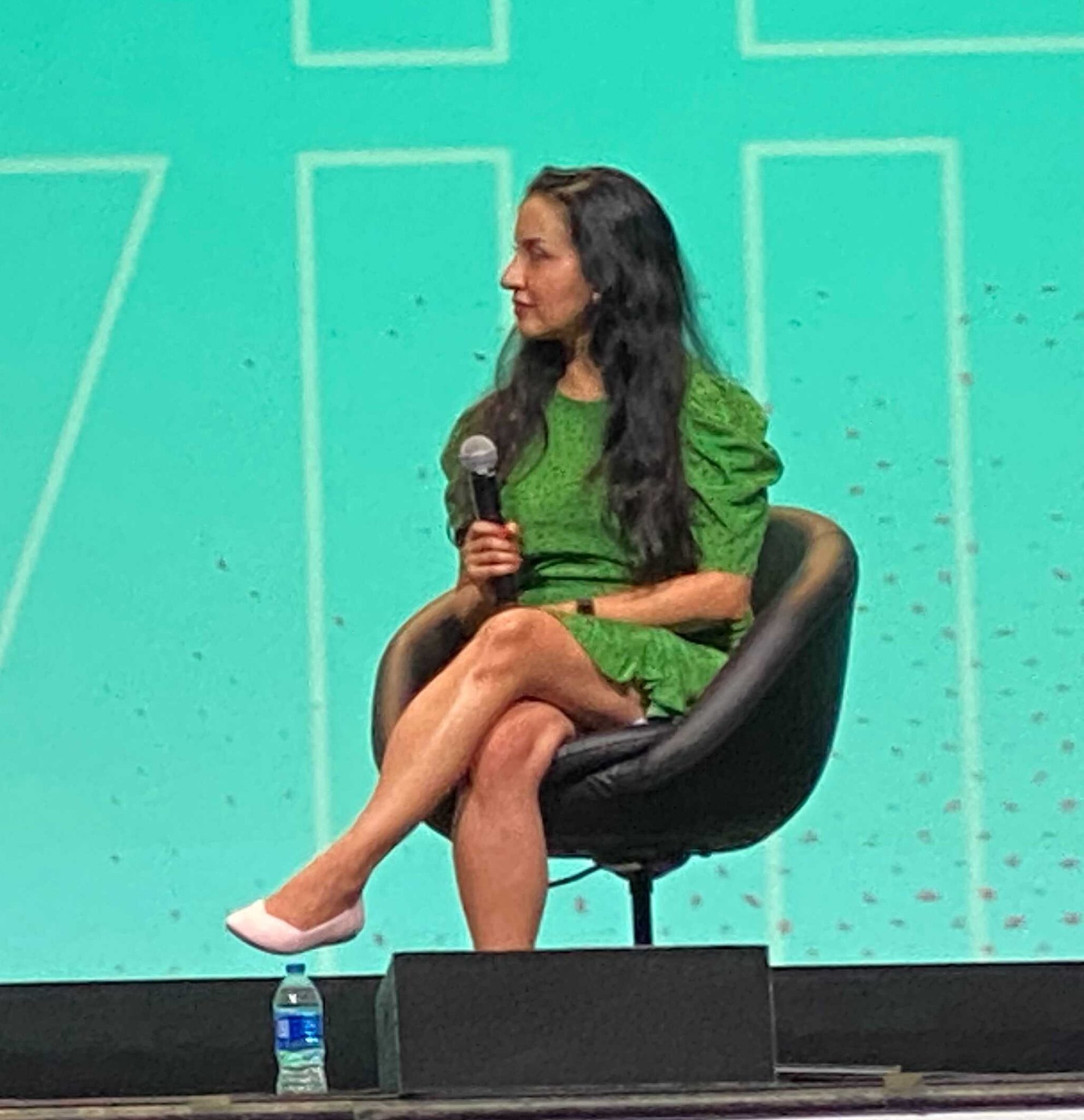
Ana and her family like their home, but it needs to be bigger. A cash-out refi didn’t give them enough funds for their dream renovation. Should they put their money into the market in the hopes that it will grow large enough to fund a future renovation? Or should they move into a bigger house, rent out their house, and fix it up years down the road?
Anonymous from MA is flummoxed by HSA-compatible health plans. His copay and deductible are awful, and even bronze plans seem better. Are HSA plans overrated, or does the math work out?
Aja’s mom is 75 and has to take required minimum distributions from her IRA. She doesn’t need the money. Where should she put it?
Nick has a seasonal business. Can a sweep account help stabilize him?
My friend and former financial planner, Joe Saul-Sehy, joins me to answer these questions on today’s show. Enjoy!
Do you have a question on business, money, trade-offs, financial independence strategies, travel, or investing? Leave it here and we’ll answer them in a future episode.
Julia asks (at 2:27 minutes):
My husband and I are both 27. We have a combined income of around $200,000 and we save aggressively. We both max out our 401k, 403b, and Roth IRA. The rest goes into a taxable brokerage account.
If we’d like to retire in our early to mid-40s, when should we stop contributing to retirement accounts and focus only on taxable brokerage accounts? Is there a number we should hit? I know about safe withdrawal rates, but mentally, it’s hard to not save in a tax advantaged account and instead save in a taxable account. What are your thoughts?
Ana asks (17:15 minutes):
I live in Texas with my husband and 14-year-old son. I have a daughter who’s a freshman in college. My husband and I both have Ph.D.’s – we’re professors at a university. Our jobs are secure, and we earn around $240,000 per year. We also have a pension with the teacher retirement system that will cover between 50-70 percent of our salary when we retire in 15 years (at age 65).
Five years ago, we each started saving $19,500 in our 403bs and have continued to do so each year. The balance is around $250,000. We’re cash flowing our daughter’s college and we have $10,000 in a 529 for our son.
Ten years ago, we paid $327,000 for our house. It’s now worth $650,000. We like the location and the neighbors, but it’s a small 1,400 sq. ft. ranch built in 1950. In January 2021, we did a cash-out refi to get money to renovate the house. This also reduced our interest rate from four to three percent. We were able to withdraw $280,000, but the cost of construction is so high that it’s not enough to update everything we wanted.
My questions are:
- Should we invest the $280,000 into the market and hope it grows? Our hope is that in a few years, we’ll be able to make all our updates and live in our dream house.
- Or should we buy a house in a cheaper neighborhood and rent ours out? We’d like to enjoy a bigger house while our son is in high school, and we can rent our current house for $3,000 – $4,000 per month. This covers the mortgage and taxes. In seven to ten years, we could complete our remodel and move back into our old (but updated) home.
Aja asks (at 38:52 minutes):
My mom is 75 and receives social security, owns a paid-off home, and has a small amount of rental income each month. She can easily afford her daily living expenses, medical care, etc. and has money left over.
She has $250,000 saved in non-retirement accounts. While she’s had health issues, she’s fairly active for her age. She still travels and socializes with friends.
She also has $14,000 in a local bank CD under a traditional IRA. It yields around one percent and it matures this month. She doesn’t need the money, but she has to take the required minimum distribution. Should she leave it in the CD, or transfer it to her Vanguard account and invest it somehow? If she transfers it, what type of fund should she move it to?
Anonymous from MA asks (at 50:13 minutes):
Are HSA-compatible health insurance plans severely overrated?
My wife and I are in our mid-40s, and we have a young child. We’re both self-employed and buy our own insurance on the MA Health Connector Exchange. Normally, we make too much to qualify for subsidies, but not always.
This year, we have an HSA-compatible plan with a premium of $1,100 per month, a $7,200 deductible, and a $100 copay.
I had unexpected neck issues recently that required several sessions of physical therapy. When I signed up for the sessions, their finance office called me to say that they had never seen such awful insurance. Before the deductible, I’d owe $150 per visit. And after the deductible, I’d still owe $150. They said any other plan, even any other bronze plan, would result in a lower bill. They also said I could pay $110 per visit without insurance.
I checked the exchange for different insurance options and found 40 plans on the exchange, the majority with high deductibles. But only one is HSA-compatible. I was under the false assumption that any high-deductible plan was HSA-compatible. According to Value Penguin, 81 percent of high-deductible plans are not HSA-compatible. Is this correct?
As for non-HSA insurance options, I can get a Silver plan at $1,000 per month with a $4,000 deductible and $25 copay, or a limited-provider bronze plan at $800 per month with a $5,400 deductible and $40 copay.
Admittedly, we don’t take advantage of the HSA retirement hack for cash flow reasons. Even if we did, I’m not sure the math works out. So, are HSA plans overrated?
Nick asks (at 57:54 minutes):
Can you talk about sweep accounts? I own my own business and it’s extremely seasonal. We bring in a lot of money during August and September and use that for the rest of the year.
I’m thinking of opening a sweep account to help offset this imbalance. I want my money to make money during the busy season and I’d like to spend out of the sweep brokerage during the slow parts of the year. Is this a good idea?
Resources:
- The Emotional Complexity of Money, with Dr. Dan Ariely | Podcast episode
- How to Stop Screwing Up Our Finances, Even in a World That Leads Us Astray, with Dr. Dan Ariely | Podcast episode
- More details about the SEPP 72(t) Rule: Ask Paula | Podcast episode
- VIP List Signup
Thanks to our sponsors!
Policygenius
In minutes you can work out how much life insurance coverage you need, and compare personalized quotes to find your best price. Go to policygenius.com for free quotes and comparisons across more than 30 insurers. It only takes a few minutes to get started, and Policygenius never sells your information to other companies.
LendingClub Bank
Want to earn cashback with a debit card? Then check out LendingClub Bank (previously Radius Bank). You automatically earn 1 percent cash back with every purchase made. To get started, head over to gobank.lendingclub.com/paula and enter code ‘paula’ for a $50 sign-on bonus.
Wealthfront
Want to create a portfolio of globally diversified, low-cost index funds personalized just for you? There are no manual trades, picking stocks, or watching the stock market every day with Wealthfront. They handle all the investing based on your preferences. Wealthfront is trusted with over $20 billion of assets, and you can get your first $5,000 managed for free by going to wealthfront.com/paula.

Rothy’s shoes are stylish, sustainable, and comfortable for everyday wear, anywhere. They come in numerous styles, their lineup is updated often, and their flats, shoes, and bags are made from recycled plastic water bottles! Go to rothys.com/paula to find footwear for the whole family.